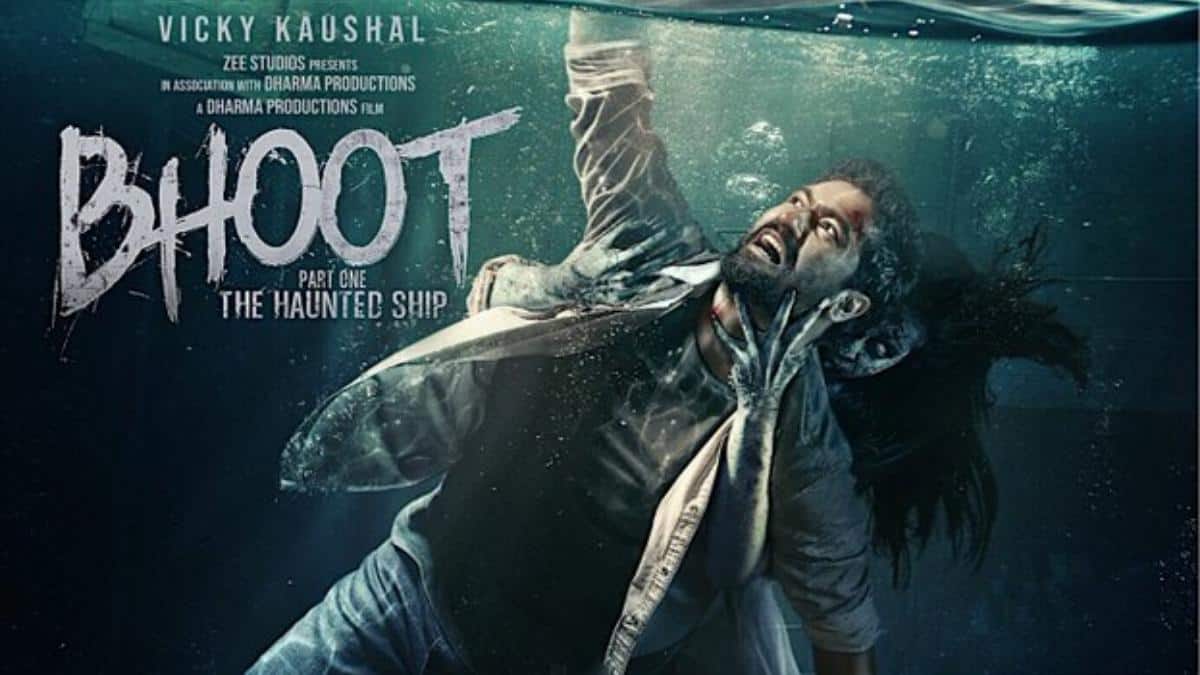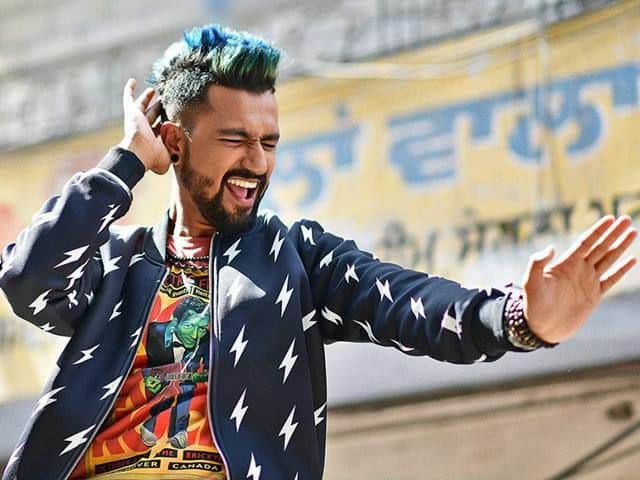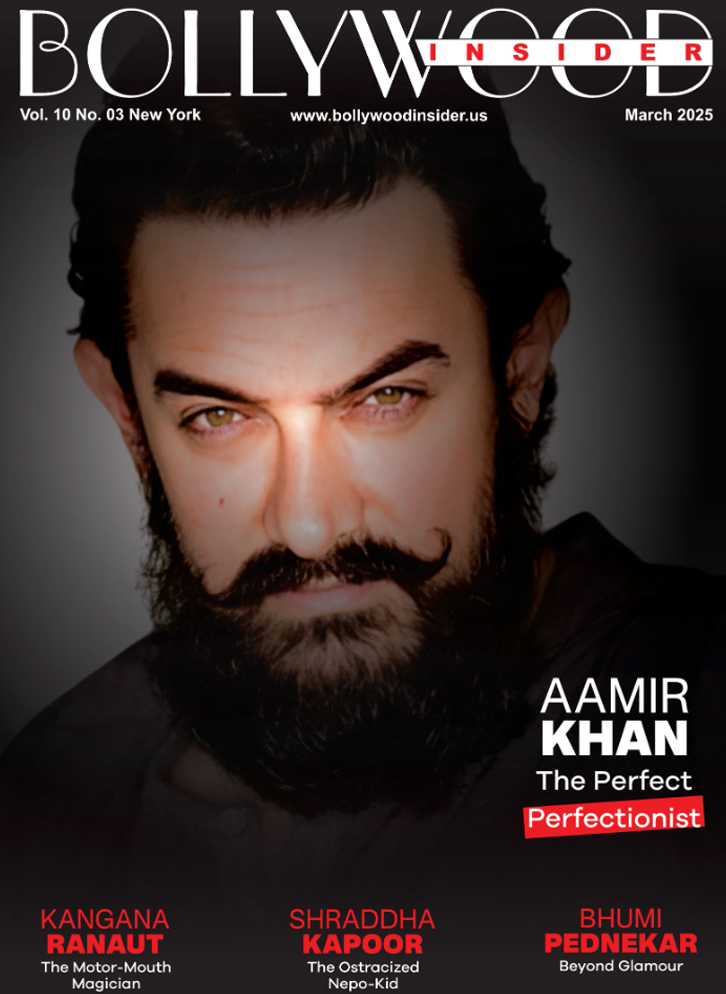“I see my success reflected in my parents’ eyes”
Vicky Kaushal had a stupendous 2018 with back-to-back successful outings. Love Per Square Foot, Raazi, Lust Stories, Sanju and Manmarziyaan showcased the actor’s range and acting prowess. But it was last year’s Uri: The Surgical Strike that got him his first National Award. His role of Major Vihaan Shergill and the line ‘How’s the josh?’ has become so popular now, that his fans often call out to him with that dialogue!
Known for not sticking to any particular genre, the actor has recently acted in his first horror film, Bhoot Part 1 - The Haunted Ship. Admittedly, Vicky himself is not a fan of horror films. “At times feel I have grown up and I can watch a horror film now. But then I get really scared,” he laughed, when we caught up with the actor for a conversation. Vicky spoke about why he likes to keep experimenting with different genres, shooting for his next film Takht and what success means to him. Excerpts from a conversation…
Do you believe in ghosts?
Nothing has ever happened to me to make me believe in ghosts, but when someone says that something spooky has happened with them, then I believe them. I get scared and I can’t sleep alone after that! (laughs).
Many a times, actors have gone through spooky experiences while shooting for horror films. Anything like that happened with you?
Once, a tall ladder fell down and stopped approximately three inches away from the crew! We were joking and telling the ghost that we are making your biopic, so let it happen in peace! (Laughs). Apart from that, nothing serious happened. We would take God’s name before shooting every day.
After the super success of Uri: The Surgical Strike, how did you think of doing a horror film?
This film was offered to me when Raazi was about to release, before Sanju happened and even before Uri was shot. When I read it, the geography of the film fascinated me. It was almost like Stanley Kubrick’s The Shining.
That had an empty hotel with 100 rooms and anything could happen anywhere. This has a similar geography where there is a dilapidated ship, 300 rooms, steps etc. So, there are a lot of textures in the geography. There are so many possibilities and I believe we have juiced them well. Once you are inside a ship and screaming for help, your voice is not going to be heard by anyone. On top of that, if there is a paranormal entity, then the conflict is too rich and potent for me to pass up.
There has been a new wave of inventive cinema when it comes to horror. In India, we have had a film like Tumbbad. What’s special about Bhoot, in terms of how it looks at the genre differently?
I feel the freshness comes from the fact that it’s really sticking to the genre in the first place. There is no side track or comic relief or album of songs to lure the audience to watch a horror film. Secondly, like Bhanu (Pratap Singh, the director) has mentioned, Hollywood horror films have gone into a very eerie space,
where they are playing with human emotions. It’s that inner fear which becomes a different segment in the horror category. So right now, this is kind of a mix of both. It’s a psychological thriller, as well as pure horror as there is an entity.
How much of a strategist are you when it comes to your career?
As an artist, I feel I won’t be able to justify my work if I start planning. What’s more important is to be a part of good films by good filmmakers. People want to watch good stories. If you give them five romantic movies back-to-back, they won’t get bored if the stories are good. For me, as an actor, it’s important to keep doing different work for my own growth. If the genre becomes completely different, then it’s more exciting for me. For instance, I had not explored action before Uri, so there was that hunger in me. I have never acted in a horror film before; I’m not even its audience. I will remain alive as an actor if I keep doing new things and learning from them.
How has the last year been, especially post the National Award win for Uri?
It’s been a beautiful year. There has been so much love from the audience and trust from the producers. I’m getting to do projects and work with filmmakers I have always wanted to work with. One also feels that one is
on the right track and that one should follow their gut when it comes to scripts. Uri was from a debutante filmmaker and I was the solo lead, a first for me. So, there was a lot of responsibility. The belief in the film worked. You never know what the next Friday might bring. It’s a beautiful phase now where people are not just dependent on the packaging of the film, but also on its content.
It felt great that people have taken Uri from us and made it their own. That’s more gratifying than any award or Box Office success. There are times when I have been called by my name, at times with ‘How’s the josh?’ That feels amazing. But the time when you feel your success the most is when you see the happiness in your parents’ eyes. My dad always says that his only regret in life is that by the time he achieved some success, his father had become too old to enjoy it. I feel happy that my parents are here to see my good times. God has been really kind.
With your films doing well, we hear even your remuneration has gone up?
Chulha bhi toh jalaana hai! (laughs) It’s not like that. There are some films that take 20 days to shoot, while some others take ten months along with the prep. So, there are those logistical reasons. At the end of the day, you are selling your services. And it’s not as if it doesn’t go down as well, but people tend to talk about it only when it goes up.
You will begin shooting for Karan Johar’s Takht now, in which you play Aurangzeb. For you as an actor, what is going to be the biggest challenge?
I have always wanted to be a part of a periodic drama and this is as big as it gets with a great ensemble cast and Karan at the helm of it. Their pressure is that the narrative should be as true as history has written it. I have to follow the vision of the director. Whether I play Prithvi in Bhoot or Aurangzeb in Takht, the honesty of the emotions remains the same. My loyalties are towards the script. Of course, we know that what we are doing
has to be as sensitive as possible, to what was actually a part of history. Like Karan has said, he’s just telling you the story that history has already written.







